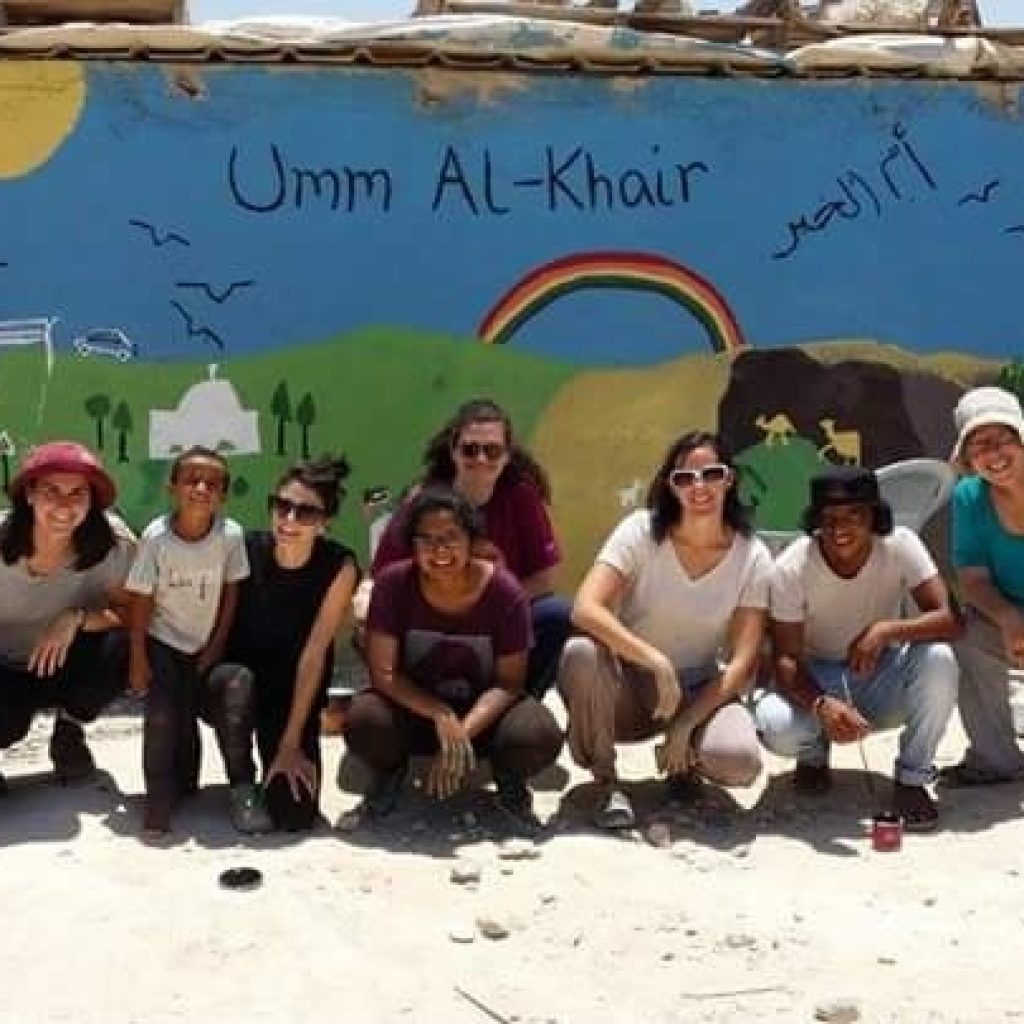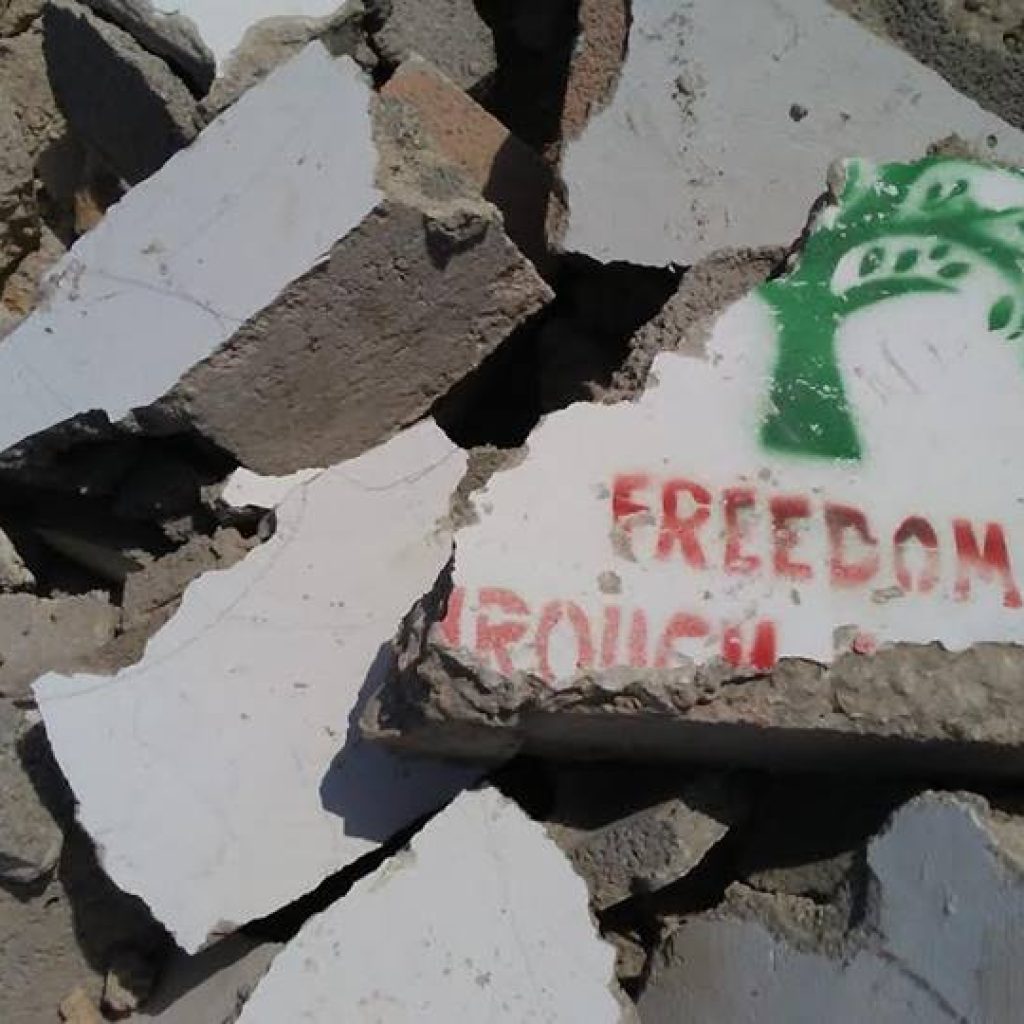– by Erez Bleicher – 7/5/2023
I was hosted this past Friday in the occupied South Hebron Hills for the first of what will be monthly solidarity visits jointly organized by the Green Olive Collective and All That’s Left. These solidarity work days are an opportunity to stand in solidarity with Palestinian villages and materially support their steadfastness in the face of occupation.

But what does occupation really mean in the daily lives of Palestinian residents in the region? For many of us living around the world, the reality of occupation can seem abstract and its visceral impact on Palestinians understandably hard to grasp.
My personal understanding of occupation has been disproportionately shaped by my own experiences working as a solidarity activist in the South Hebron Hills since 2016. That June I arrived in the village of Umm Al Khair in the South Hebron Hills as part of a solidarity delegation of Jewish justice advocates. We spent the day painting a mural with children in the Umm Al Khair Community Center and learning about the history of the village.
One month later I received an urgent call from village residents and was informed that the Community Center we painted had been demolished by the Israeli military. I drove with other activists the next day and arrived to find the community devastated and the center reduced to rubble. It was my introduction to the reality of occupation and gave me a first glimpse into the oppression Palestinians experience in Area C of the occupied West Bank. The next week I organized my first solidarity work day, and coordinated a bus of Israeli and international solidarity activists to clear the rubble and, more importantly, stand together with the community against injustice and occupation.

Since then I have worked with others to build a network of sustained solidarity and co-resistance in the region. Community organizers with the Israeli solidarity organization Ta’ayush have worked diligently to build this network since the early 2000s after the Second Intifada, and I’ve worked in the past years with various related projects to continue expanding the possibilities of direct action and civil disobedience under the leadership of the Palestinian residents. They have become my teachers and I have learned tremendously from them about what it means to act with integrity in the face of unimaginable adversity.
I have also learned that Palestinians living in Area C are not citizens of any state, but subjects of military administration that have no democratic representation in the institutions which govern their lives. I learned that they have no civil rights and are tried in military courts without due process or basic democratic rights considered standard internationally. And I learned that although the military is obligated under international law to provide for the civilian needs of the people in Area C, it does not honor these obligations and denies Palestinians in the region adequate access to infrastructure for water, electricity, and building permits.
I have seen for myself how the policies of the occupation are designed to drive Palestinians from their homes in Area C into the cities of Area A. I have met two Palestinians personally who were later killed by occupation forces during confiscations of Palestinian property. And I have seen how the lives of young Palestinian children are upended when their homes are destroyed for being built without permits the Israeli military never grants.
But more than anything else, I have learned from Palestinian partners what it means to live with dignity and act with courage even when the forces arrayed against you seem immeasurable. They understand that the basic logic of occupation is separation, segregation, partition, and apartheid. They know that the occupation depends on Palestinians being isolated from potential allies in the grassroots and diplomatic world, and they act principally to create partnerships despite all the challenges. In the end, they have taught me that we must never let the occupation dictate our actions and how to maintain an imagination of the future that exceeds the boundaries, borders, and barbed wire fences the military creates. I hope you will join us for our next work day to see for yourself and together build a shared vision for the future.


Comment (0)